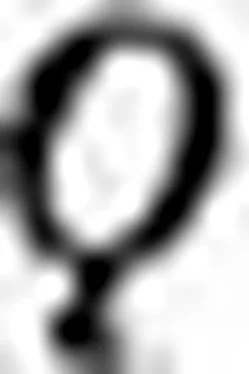Hilda Ellis Davidson - Gods and Myths of Northern Europe
Здесь есть возможность читать онлайн «Hilda Ellis Davidson - Gods and Myths of Northern Europe» весь текст электронной книги совершенно бесплатно (целиком полную версию без сокращений). В некоторых случаях можно слушать аудио, скачать через торрент в формате fb2 и присутствует краткое содержание. Жанр: История, на английском языке. Описание произведения, (предисловие) а так же отзывы посетителей доступны на портале библиотеки ЛибКат.
- Название:Gods and Myths of Northern Europe
- Автор:
- Жанр:
- Год:неизвестен
- ISBN:нет данных
- Рейтинг книги:5 / 5. Голосов: 1
-
Избранное:Добавить в избранное
- Отзывы:
-
Ваша оценка:
- 100
- 1
- 2
- 3
- 4
- 5
Gods and Myths of Northern Europe: краткое содержание, описание и аннотация
Предлагаем к чтению аннотацию, описание, краткое содержание или предисловие (зависит от того, что написал сам автор книги «Gods and Myths of Northern Europe»). Если вы не нашли необходимую информацию о книге — напишите в комментариях, мы постараемся отыскать её.
Gods and Myths of Northern Europe — читать онлайн бесплатно полную книгу (весь текст) целиком
Ниже представлен текст книги, разбитый по страницам. Система сохранения места последней прочитанной страницы, позволяет с удобством читать онлайн бесплатно книгу «Gods and Myths of Northern Europe», без необходимости каждый раз заново искать на чём Вы остановились. Поставьте закладку, и сможете в любой момент перейти на страницу, на которой закончили чтение.
Интервал:
Закладка:
The Viking adventurers were indomitable. They reached the eastern shore of America; they pushed down the Dnieper to Byzantium, where the Christian emperor valued their physical prowess sufficiently to enrol them in his special Varangian guard. They refused to be intimidated by ghosts of the past or the proud civilization of the south, but had the effrontery to cut runic inscriptions on ancient tombs like Maeshowe in Orkney, and on classical monuments like the marble lion of the Piraeus. No haven seemed safe from their longships, and no coast town or village from their favourite weapons: the long sword, the axe, and the firebrand. By 870 they were masters of northern and eastern England. Only the resolution of one young prince, in indifferent health and without powerful allies, kept them from engulfing southern England also, and destroying what three centuries of Christian culture had built. It is hardly surprising that alone among English rulers that prince, Alfred, bears the title Great.
These are the people to whom we turn for our northern myths. They were a formidable body of men, all the more so because they cannot be condemned as a collection of rogues and sadists, blind to all but material values. Of course there were worthless rascals among them, and they could be brutal enough, as the monks at Lindisfarne knew; but their leaders were in many cases men of culture, discrimination, and wit, with love of a good story and a neat jest. They loved fine art and craftsmanship, and treasured their good ships and splendid swords for their beauty as well as their utility in war. A quick-witted poet could win his way in their world as well as a brilliant swordsman, and the man who was both at the same time, like Egill Skallagrimsson the Icelander, or Earl Ragnald of Orkney, had the world at his feet. They were shrewd traders too, with a wily instinct for commerce not unworthy of a modern business magnate. Not a few who sowed their wild oats and built up a promising little fortune a-viking in the western seas grew up to be wise rulers, fathers of fine families, and valuable members of the community; some even came to be saints. From such lively, alert minds one would expect a rich and vigorous mythology, and they do not disappoint us.
The Sources of our Knowledge
Northern heathenism, that is, the pre-Christian beliefs of the Germanic peoples and the Scandinavians, came to an end in the eleventh century. There were two periods when it presented a threat to Europe: the first was at the time of the fall of Rome, when the Germanic tribes were overrunning the west, and the second was in the ninth and tenth centuries, when the Vikings were a great power and a menace to Christian civilization. In each case Christianity triumphed, and the hostile bands of invaders were converted to the faith. Since they themselves had no desire to make converts, they were at a serious disadvantage, and it was only a matter of time before the new religion replaced the old.
Before this finally happened, however, there was a period of a thousand years in which the old gods were worshipped in the north. This is a long time, and the forms and practices of the heathen religion must have changed greatly during the course of it. We know that there was considerable variety among the religions of the different German tribes, who had no universal faith or church. Moreover there were outside influences to affect the heathen peoples: first from the pagan Mediterranean area, secondly from the East, and thirdly from the Christian Church We must avoid the common error of supposing that the myths which we possess grew out of a fixed and permanent heathen faith possessed by the whole Germanic world.
The heathens themselves left few written records. Such restless adventurers were not the kind of people to sit down and inscribe stories and poems on parchment, and indeed they did not know how to do so. A few wise men could carve runic letters on wood or stone or metal, but this process was not suitable for long and detailed records. The art of writing with a pen only reached the north with the Christian priests. Consequently, our written records from heathen times come either from outsiders, writing Greek or Latin, or from monks in Christian monasteries. One most valuable commentator from early times is the Roman historian Tacitus, living at the end of the first century after Christ, since he was deeply interested in the Germanic way of life, and believed Rome should learn from it. Our difficulty, however, is to decide how far he and many far less gifted recorders of heathen beliefs and practices can be relied upon for accurate first-hand reporting. As far as the poems, stories, spells, riddles, and chronicles written down in the monasteries are concerned, they may have been recorded as much as two or three hundred years after the conversion, and this allows the possibility of prejudice, misinterpretation, or deliberate editing when non-Christian beliefs are being dealt with.
Fortunately it seems that many monks rejoiced in the old stories and poems, and wished to preserve them. England has a great treasure in the form of the complete epic poem, Beowulf , the tale of the exploits of a Scandinavian hero of heathen times. It was written down about A.D. 1000, long after the Anglo-Saxons were converted, so it is not free from Christian influence, but it contains information about the heroic past and the way of life in northern Europe before Christianity was established there. Fragments of other heroic poems remain, enough to remind us that our losses have been great. The prose sagas from Iceland have already been mentioned. They were written down in monasteries, and are stories of the adventures and relationships of the early settlers there at the time when most of them were heathen. The sagas are not free from Christian and romantic influences, and the modern tendency is to regard them as brilliant historical novels rather than wholly reliable records of the heathen past, but the memory of heathen customs preserved in them is of considerable value. The sagas of the kings of Norway have recorded more information for us about pre-Christian traditions and the struggles of the early Christian kings to overthrow heathenism. Also from Iceland comes a collection of mythological poems about the heathen gods, which were written down about the thirteenth century, but must contain earlier material. They are unequal in quality, but contain some poetry of great imaginative power. Without these poems, our ideas about heathen religion would be very different, and it is a sobering thought that they are nearly all from one small vellum book of forty-five leaves, the Codex Regius , rescued by chance from an Icelandic farmhouse in the seventeenth century. One can only speculate how many other priceless books of this kind have vanished without trace.
Читать дальшеИнтервал:
Закладка:
Похожие книги на «Gods and Myths of Northern Europe»
Представляем Вашему вниманию похожие книги на «Gods and Myths of Northern Europe» списком для выбора. Мы отобрали схожую по названию и смыслу литературу в надежде предоставить читателям больше вариантов отыскать новые, интересные, ещё непрочитанные произведения.
Обсуждение, отзывы о книге «Gods and Myths of Northern Europe» и просто собственные мнения читателей. Оставьте ваши комментарии, напишите, что Вы думаете о произведении, его смысле или главных героях. Укажите что конкретно понравилось, а что нет, и почему Вы так считаете.












